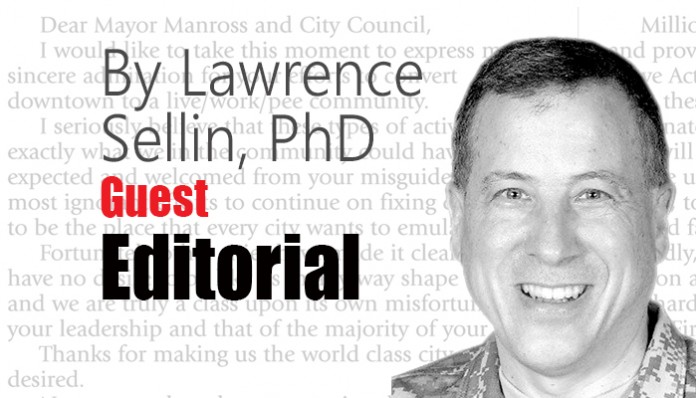According to the New York Times, in his first “all hands” staff meeting on February 23rd, President Trump’s newly appointed national security adviser, Lt. Gen. H. R. McMaster “told his staff that Muslims who commit terrorist acts are perverting their religion” and “that the label ‘radical Islamic terrorism’ was not helpful because terrorists are ‘un-Islamic,'” thereby rejecting the viewpoint of President Trump and many of his senior advisors.
It is indeed ironic that McMaster, who often quotes ancient Chinese strategist Sun Tzu and Carl von Clausewitz, 19th century military theorist, should now ignore their advice, both of whom stressed the importance of knowing your enemy.
As Schmuel Bar, writing for the Hoover Institute, notes “to treat Islamic terrorism as the consequence of political and socioeconomic factors alone would not do justice to the significance of the religious culture in which this phenomenon is rooted and nurtured” and “the problems addressed may be social or political: inequality, corruption, and oppression. But in traditional Islam – and certainly in the worldview of the Islamic fundamentalist – there is no separation between the political and the religious. Islam is, in essence, both religion and regime (din wa-dawla) and no area of human activity is outside its remit.”
Bar concludes: “Attempts to deal with the terrorist threat as if it were divorced from its intellectual, cultural, and religious fountainheads are doomed to failure. Counterterrorism begins on the religious-ideological level and must adopt appropriate methods. The cultural and religious sources of radical Islamic ideology must be addressed in order to develop a long-range strategy for coping with the terrorist threat to which they give birth.”
Although McMaster has not yet made it clear why he dissociates Islam from terrorism, he may be taking a practical approach, one which Daniel Pipes describes as “not wanting to offend Muslims” because “those who would otherwise help fight terrorism feel insulted (‘a true Muslim can never be a terrorist’) and so do not step forward while those who would be uninvolved become radicalized, some even becoming terrorists.”
In addition, explicit phrases like radical Islamic terrorism, some claim, ‘bolsters our enemy’s propaganda claim that the West is at war with Islam.'”
Thus, by sparing alleged Muslim sensitivities, adherents to that approach fail to fulfill that fundamental maxim of military strategy – knowing your enemy.
It also can be counterproductive.
I agree with Dr. Sebastian Gorka and Dr. Zuhdi Jasser, it is “not a war with Islam, but a war inside Islam,” and that aggressive and violent part of Islam has declared war on us.
By not accurately defining who the enemy is, you can actually set back the efforts of potential Muslim reformists such as President Abdel Fattah el-Sisi of Egypt and Jordanian King Abdullah.
Dr. Jasser explains that such ambiguity plays into the hands of the Saudi regime, the Iranian Khomeinists and the Muslim Brotherhood, who “want to dominate what Islam means.”
“If you don’t call it political Islam or Islamism as the threat”, he says, “you’re not going to be able to figure out who to engage.”
In the final analysis, you cannot address the problem without a comprehensive strategy to combat Islamic terrorism at its ideological roots, as Schmuel Bar states:
“Such a strategy must be based on an acceptance of the fact that for the first time since the Crusades, Western civilization finds itself involved in a religious war; the conflict has been defined by the attacking side as such with the eschatological goal of the destruction of Western civilization. The goal of the West cannot be defense alone or military offense or democratization of the Middle East as a panacea. It must include a religious-ideological dimension: active pressure for religious reform in the Muslim world and pressure on the orthodox Islamic establishment in the West and the Middle East not only to disengage itself clearly from any justification of violence, but also to pit itself against the radical camp in a clear demarcation of boundaries.”
Clausewitz supplies an appropriate quote:
“The first, the supreme, the most far-reaching act of judgement that the statesman and commander have to make is to establish . . . the kind of war on which they are embarking; neither mistaking it for, nor trying to turn it into, something that is alien to its nature.”
Lawrence Sellin, Ph.D. is a retired colonel with 29 years of service in the US Army Reserve and a veteran of Afghanistan and Iraq. Colonel Sellin is the author of “Restoring the Republic: Arguments for a Second American Revolution “. He receives email at [email protected].





